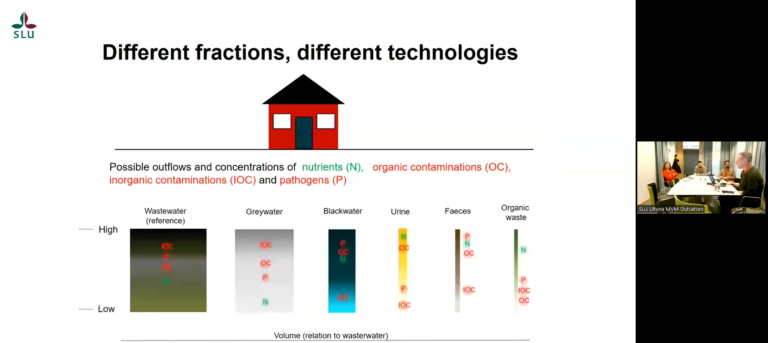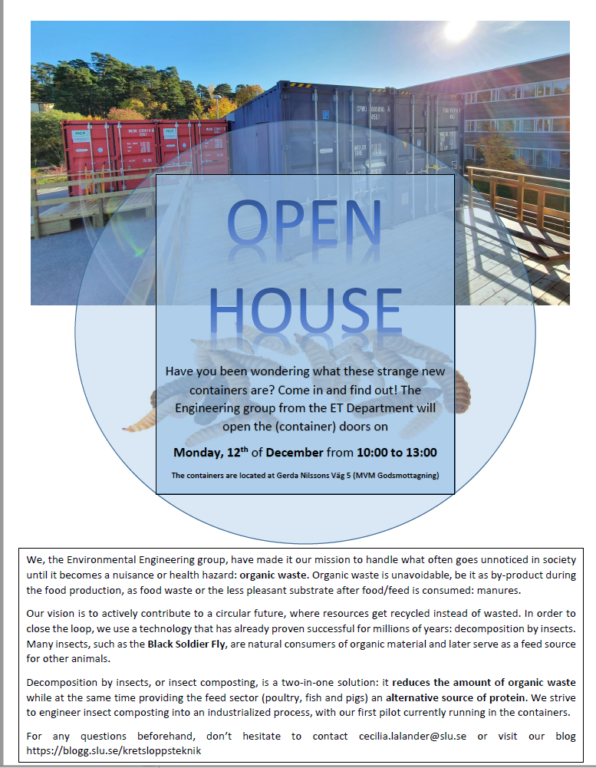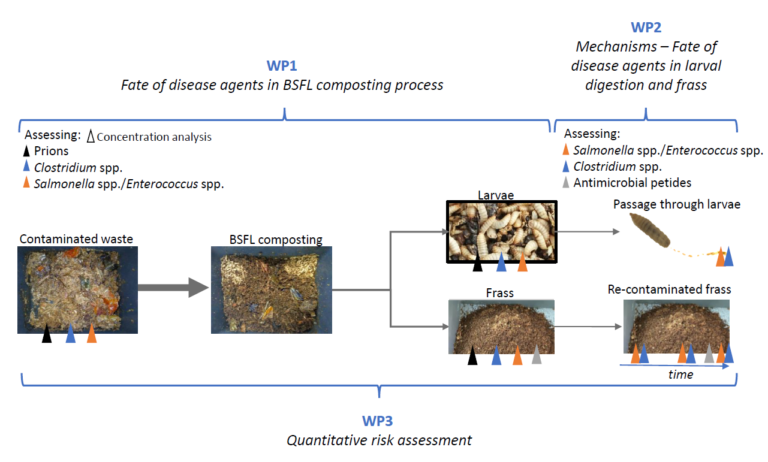As the project “5F” (Framtidens Foder till Fågel, Fisk och Fläsk) nears its final phase, the implementation of a container-based solution in northern Sweden has begun. In January, the SLU team spent two weeks in Boden, collaborating with Catharina Ljungcrantz and her team to start processing supermarket waste using Black Soldier Fly larvae. During this time, the team received training on how to handle the food waste, including portioning, feeding, and harvesting the treated substrate. The larvae will be utilized by Vattenfall to assess how young fish, raised in the farm, respond to insects— their natural food source—and whether this will enhance their survival rates after being released into the wild. For more information, follow the link to read about how Vattenfall vill testa framtidens fiskfoder i Boden – Boden Business Park.
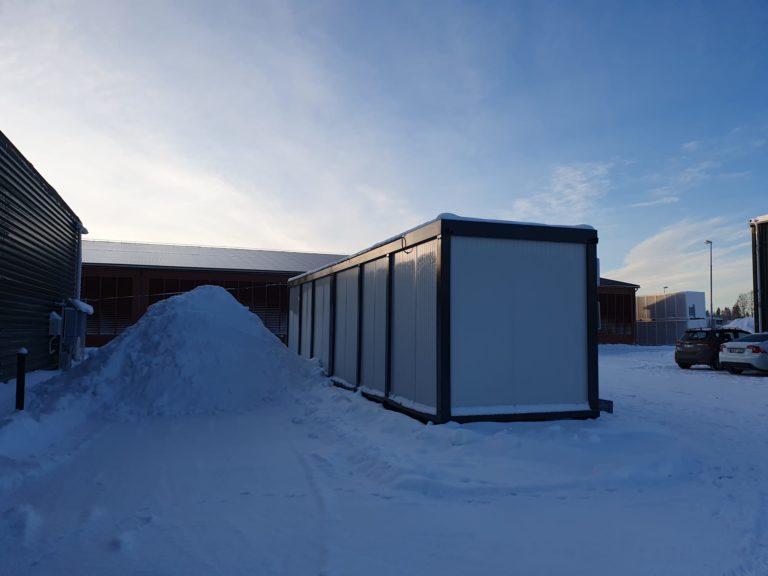
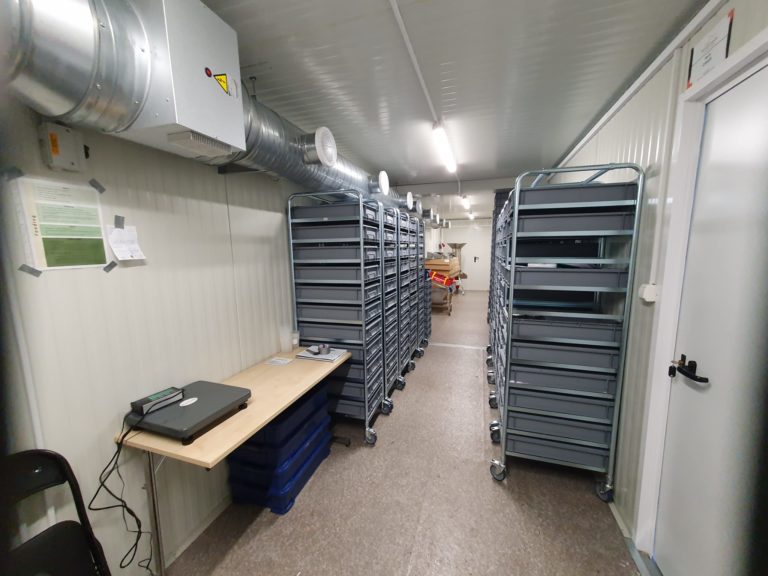

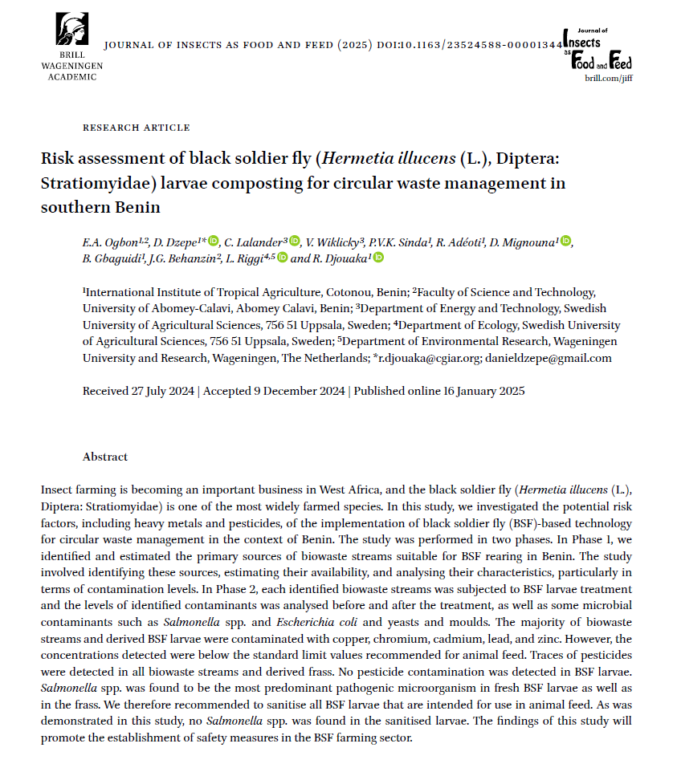

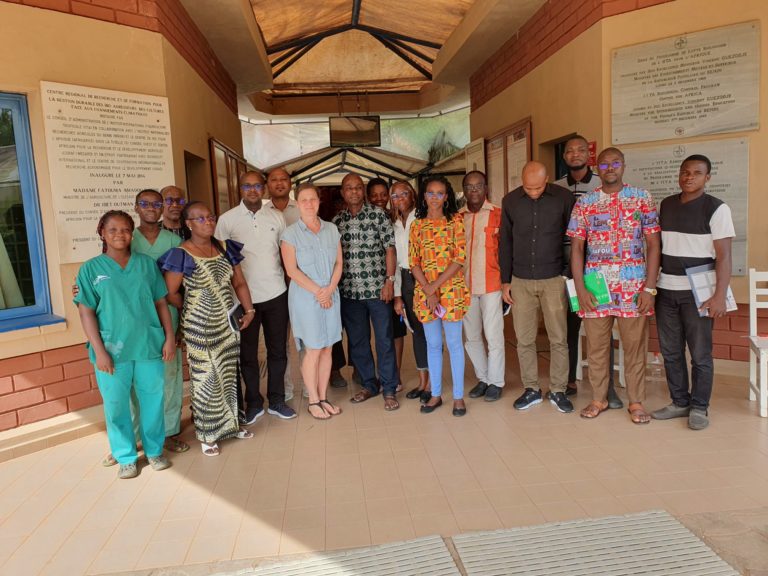

 Several members and PhD students of the ETE department (Environmental Technology) at Wageningen University & Research visited SLU earlier this month. We enjoted several interesting presentations from Miriam van Eekert, Huub Rijnaarts, Cecilia Lalander and Prithvi Simha which were followed by great discussions and a poster session where all PhD students got to showcase their research. We all also got to play a serious game which was facilitated by Jennifer McConville. It was a great day and we really look forward to future collaboration with ETE.
Several members and PhD students of the ETE department (Environmental Technology) at Wageningen University & Research visited SLU earlier this month. We enjoted several interesting presentations from Miriam van Eekert, Huub Rijnaarts, Cecilia Lalander and Prithvi Simha which were followed by great discussions and a poster session where all PhD students got to showcase their research. We all also got to play a serious game which was facilitated by Jennifer McConville. It was a great day and we really look forward to future collaboration with ETE.